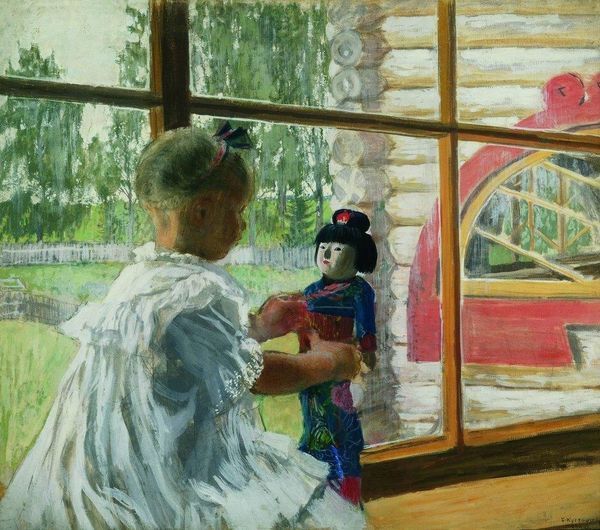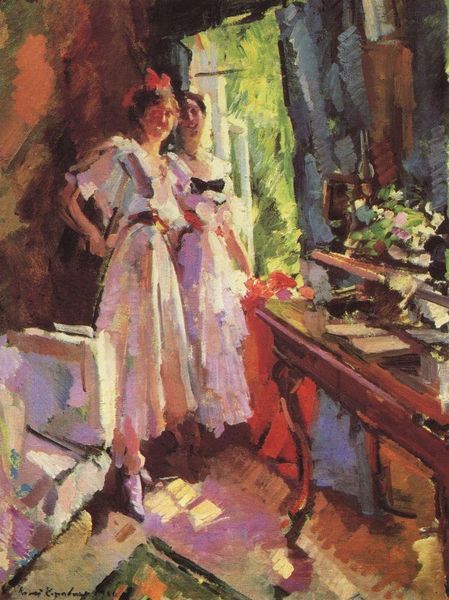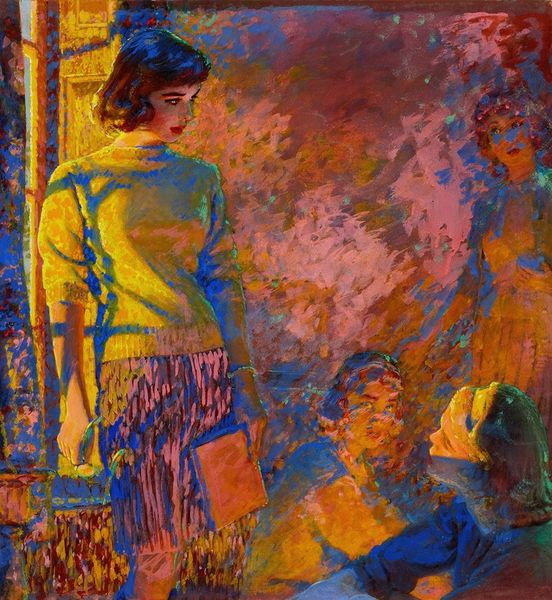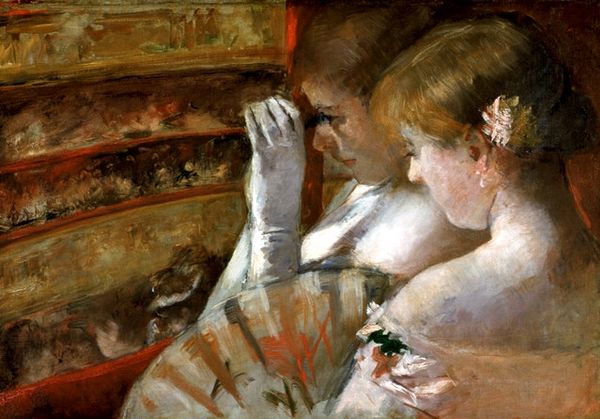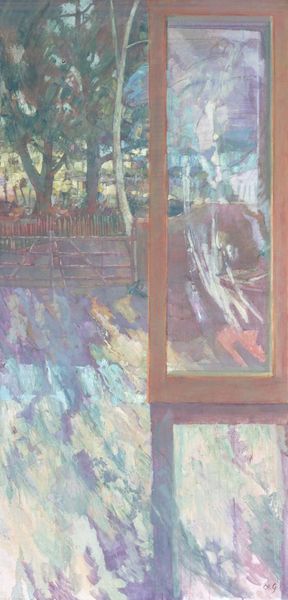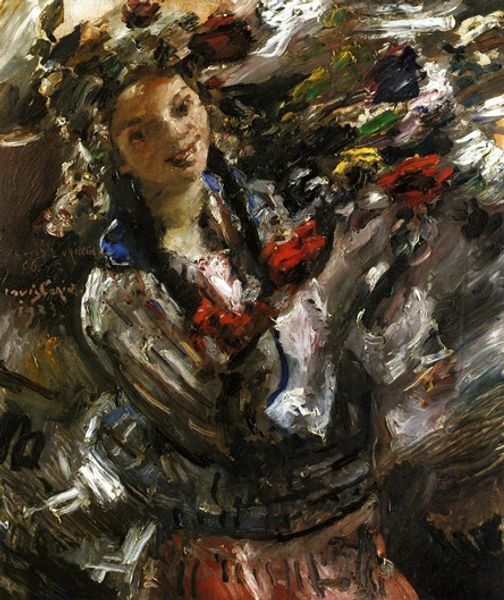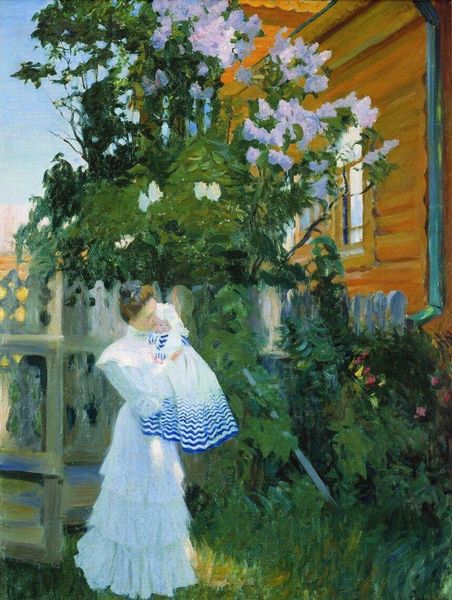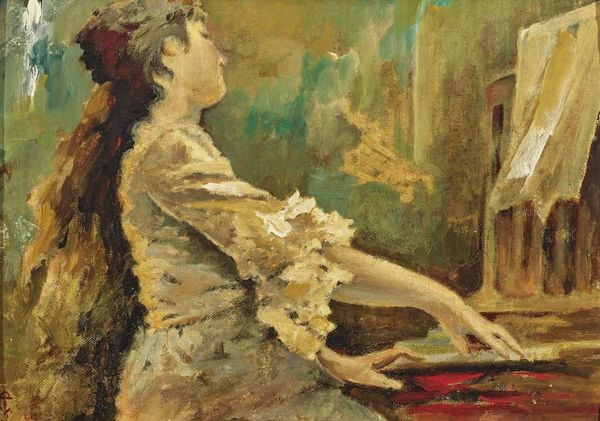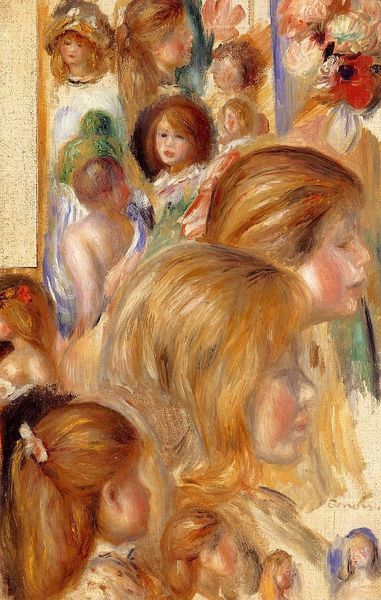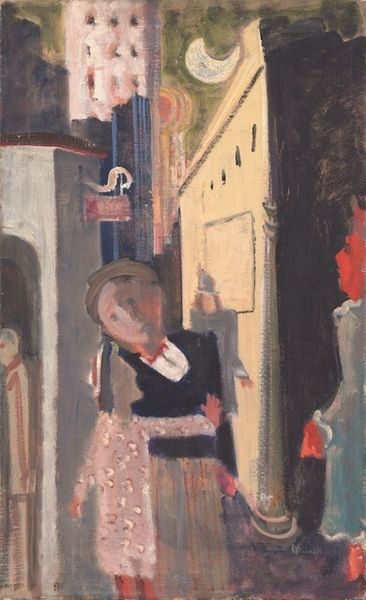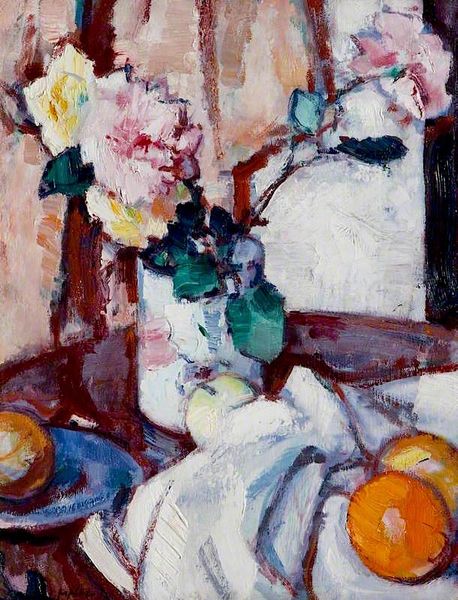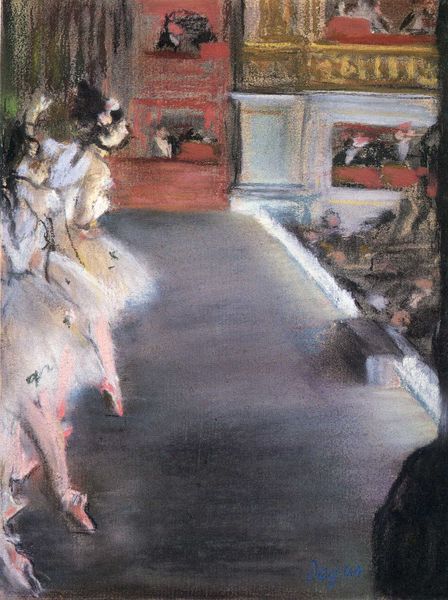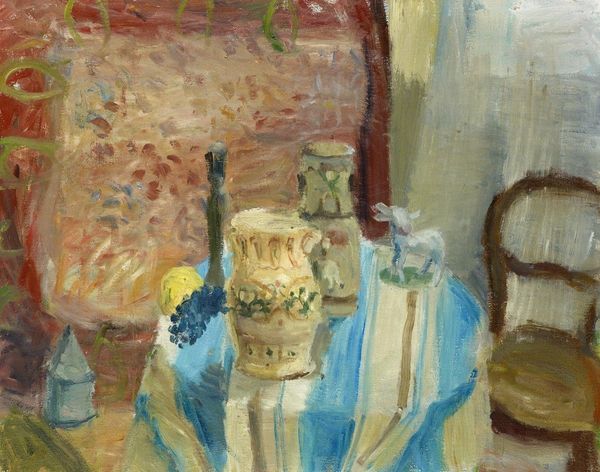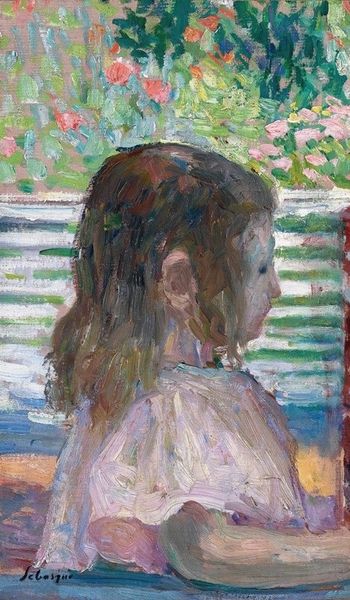
Copyright: Public domain
Curator: Ah, "At the Window. Portrait of I.B. Kustodieva," an oil painting completed by Boris Kustodiev in 1910. Editor: Instantly, it feels like a stolen moment, doesn't it? A young girl captivated by the world outside. There's such a tender melancholy to it. The blurry, dreamy way the outside is rendered makes it feel less like a place and more like a yearning. Curator: Kustodiev was quite adept at capturing the Russian spirit, and it’s interesting how here, rather than folklore, he turns his gaze towards the domestic sphere. It's less about grand narratives, more about quiet moments of bourgeois life and the children contained within them. Editor: And that doll! Forgotten, slumped against the flowerpot. Is she jealous? Or is she just a silent witness to this fleeting moment of longing? Maybe she represents what the girl will leave behind. Toys for lived experience. Curator: I think we must also see that period, the pre-revolutionary years, through that window. A period when Russia looked to the West with a peculiar mixture of hope and suspicion. The avant-garde was in full swing, and it makes us think about how Kustodiev interpreted these external influences, embedding subtle nuances within traditional portraiture. Editor: The way the sunlight catches her dress… it's so delicate! You can almost feel the texture of the fabric, that slightly scratchy, starched feeling of a Sunday dress you'd hate but secretly adore because you know it meant adventure might be brewing. Do you think she is waiting for something, or simply hoping? Curator: It’s easy to imagine this painting was received well at the time. Kustodiev managed to capture something inherently innocent but tinged with the social anxieties and cultural dynamism of that era. It serves as both a tender image of childhood and a telling portrait of pre-revolutionary Russia. Editor: This girl feels alive. The light and the yearning practically pour out of the frame. Maybe it’s less about Russia, and more about that universal ache to reach for something just beyond our grasp. Curator: Perhaps it's both. Thanks to paintings like these we continue seeing history anew and find pieces of ourselves within these frames. Editor: I guess the beauty is in deciding where we stand in relation to the glass; longing to be outside, or content to witness. Thanks.
Comments
No comments
Be the first to comment and join the conversation on the ultimate creative platform.
